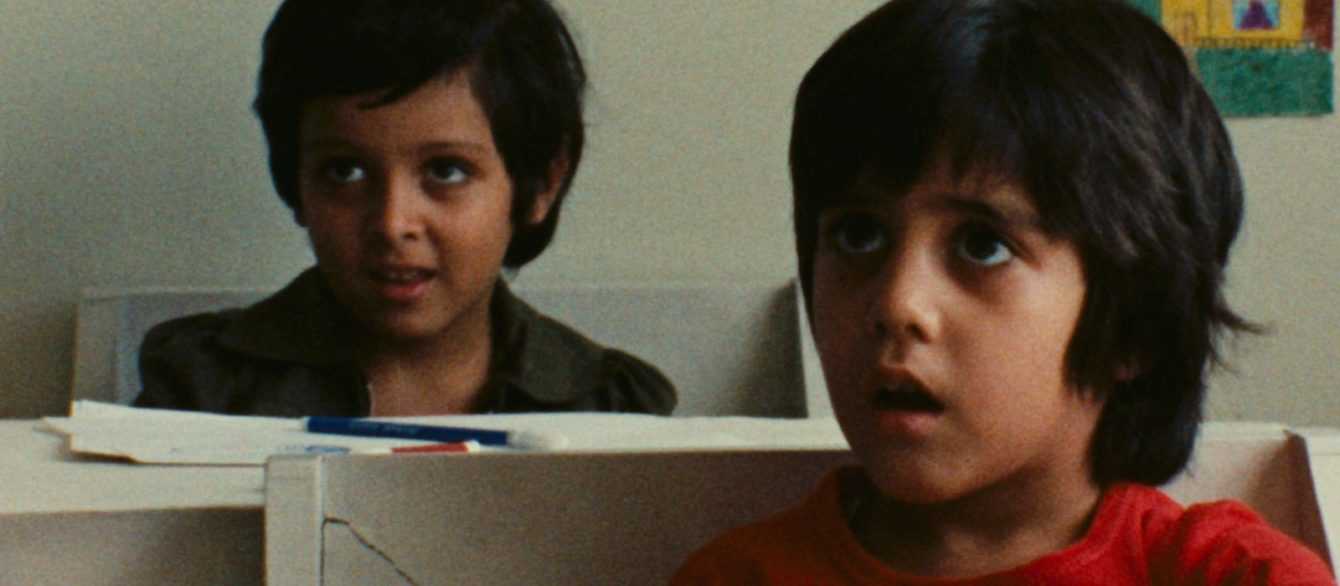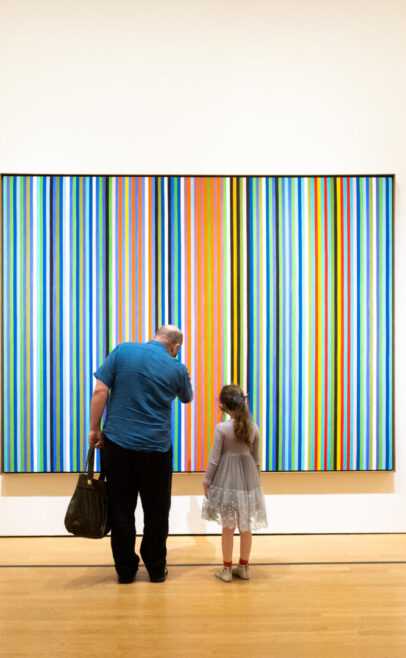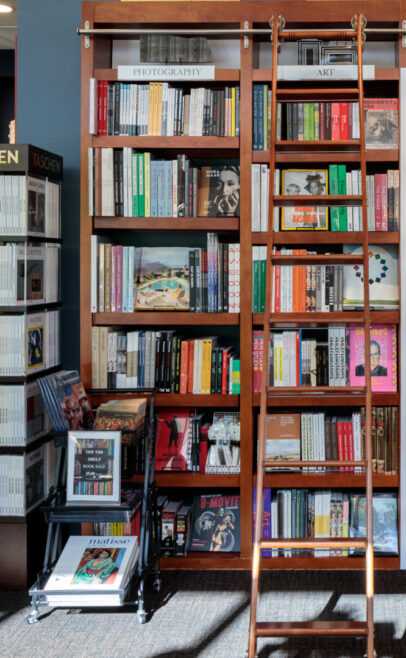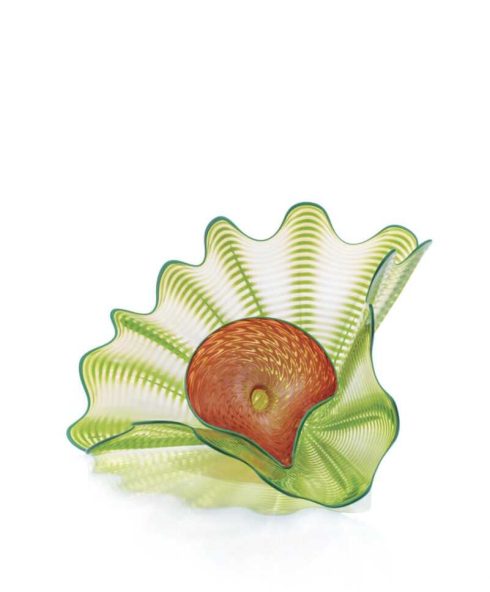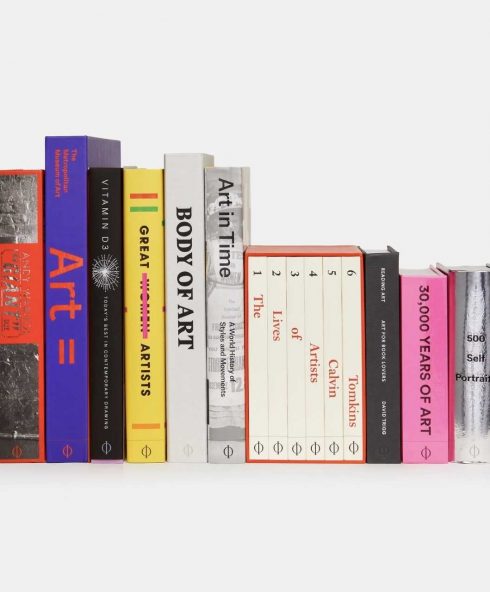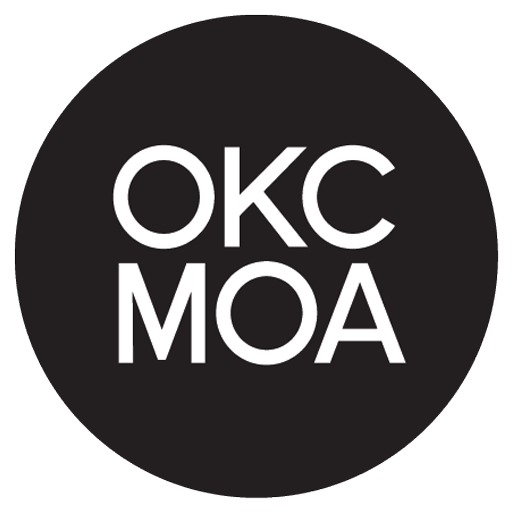The Bread and Alley | Abbas Kiarostami | 1970 | No spoken dialogue | 10 minutes | NR | DCP
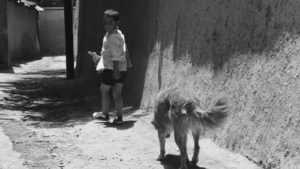 “‘The mother of all my films,’ according to Abbas Kiarostami, starts out as a breezily observed anecdote about a boy wending his way home through Tehran alleys carrying a loaf of bread. Variations on both the boy and the old man he sees and begins to follow will factor into future Kiarostami films, as will the use of “dead time,” the journey structure, and the poetic articulation of space. The final scene, involving a dog and a door, ends things on a note of wry ambiguity.” – Janus Films
“‘The mother of all my films,’ according to Abbas Kiarostami, starts out as a breezily observed anecdote about a boy wending his way home through Tehran alleys carrying a loaf of bread. Variations on both the boy and the old man he sees and begins to follow will factor into future Kiarostami films, as will the use of “dead time,” the journey structure, and the poetic articulation of space. The final scene, involving a dog and a door, ends things on a note of wry ambiguity.” – Janus Films
Breaktime | Abbas Kiarostami | 1972 | No spoken dialogue | 11 minutes | NR | DCP
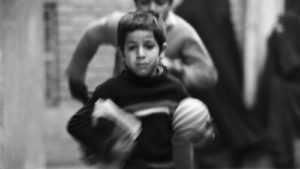 “Disciplined at school for breaking a window, a boy joins throngs of his schoolmates as they make a cacophonous exit onto Tehran’s streets. He then briefly joins an impromptu soccer game but disrupts it by stealing the ball and running away, and ends up drifting aimlessly along a busy highway. Free of dialogue but using unsynchronized sound throughout, this moody film shows Kiarostami expanding his visual vocabulary with zooms and crane and helicopter shots.” – Janus Films
“Disciplined at school for breaking a window, a boy joins throngs of his schoolmates as they make a cacophonous exit onto Tehran’s streets. He then briefly joins an impromptu soccer game but disrupts it by stealing the ball and running away, and ends up drifting aimlessly along a busy highway. Free of dialogue but using unsynchronized sound throughout, this moody film shows Kiarostami expanding his visual vocabulary with zooms and crane and helicopter shots.” – Janus Films
So Can I | Abbas Kiarostami | 1975 | In Persian with English subtitles | 4 minutes | NR | DCP
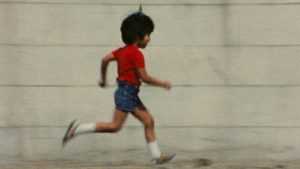 “The first of Kiarostami’s films made for, rather than just about, children was an experiment in combining live action and animation, done in collaboration with animator Nafiseh Riahi. As two schoolboys watch animated views of animals’ actions—kangaroos jumping, fish swimming, etc.—one boy (played by Riahi’s son Kamal) says, “I can, too,” and imitates the actions. The music is sprightly, the mood fun. The second boy is Kiarostami’s son Ahmad.” -Janus Films
“The first of Kiarostami’s films made for, rather than just about, children was an experiment in combining live action and animation, done in collaboration with animator Nafiseh Riahi. As two schoolboys watch animated views of animals’ actions—kangaroos jumping, fish swimming, etc.—one boy (played by Riahi’s son Kamal) says, “I can, too,” and imitates the actions. The music is sprightly, the mood fun. The second boy is Kiarostami’s son Ahmad.” -Janus Films
Two Solutions for One Problem | Abbas Kiarostami | 1975 | In Persian with English subtitles | 4 minutes | NR | DCP
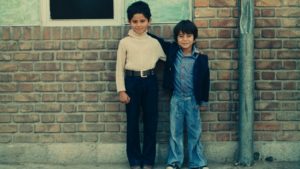 “This simple moral tale seems to prefigure Where Is the Friend’s House? Two young schoolboys, Dara and Nader, are friends until Dara returns Nader’s notebook torn and Nader retaliates in kind, setting off an escalating battle that leads to physical injury. In the second solution, Dara realizes his offense and repairs the notebook, preserving the peace and the friendship. The film is shot mostly in close-ups, with a narrator drolly chronicling the action.” – Janus Films
“This simple moral tale seems to prefigure Where Is the Friend’s House? Two young schoolboys, Dara and Nader, are friends until Dara returns Nader’s notebook torn and Nader retaliates in kind, setting off an escalating battle that leads to physical injury. In the second solution, Dara realizes his offense and repairs the notebook, preserving the peace and the friendship. The film is shot mostly in close-ups, with a narrator drolly chronicling the action.” – Janus Films
The Colors | Abbas Kiarostami | 1976 | In Persian with English subtitles | 15 minutes | NR | DCP
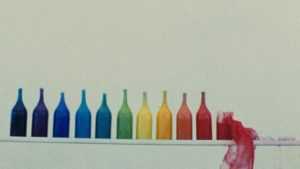 “Ostensibly also a film for children, this picture-book essay about the range of hues that brighten our world has the air of a delightfully playful formalistic exercise. As a narrator runs though the colors one by one, Kiarostami shows us where each appears in nature and human life (which occasions some
“Ostensibly also a film for children, this picture-book essay about the range of hues that brighten our world has the air of a delightfully playful formalistic exercise. As a narrator runs though the colors one by one, Kiarostami shows us where each appears in nature and human life (which occasions some
great views of prerevolutionary consumer culture in Iran). Of course, a little boy is featured—in one memorable sequence, he fantasizes about being a race-car driver.” – Janus Films
How to Make Use of Leisure Time: Painting | Abbas Kiarostami | 1977 | In Persian with English subtitles | 7 minutes | NR | DCP
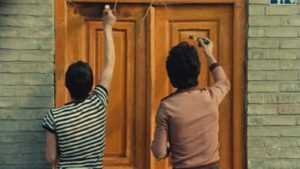 “Evidently the first installment in a series that didn’t continue, this instructional film shows idle twelve- and sixteen-year-old brothers learning how to improve their surroundings by painting an old door. With the narrator giving step-by-step instructions, the boys go through the processes of sanding, applying primer, and mixing different types of paint. Whatever its educational value, the film’s quiet enthusiasm for its subject also reflects Kiarostami’s own interest in woodworking.” – Janus Films
“Evidently the first installment in a series that didn’t continue, this instructional film shows idle twelve- and sixteen-year-old brothers learning how to improve their surroundings by painting an old door. With the narrator giving step-by-step instructions, the boys go through the processes of sanding, applying primer, and mixing different types of paint. Whatever its educational value, the film’s quiet enthusiasm for its subject also reflects Kiarostami’s own interest in woodworking.” – Janus Films
Tribute to the Teachers | Abbas Kiarostami | 1977 | In Persian with English subtitles | 20 minutes | NR | DCP
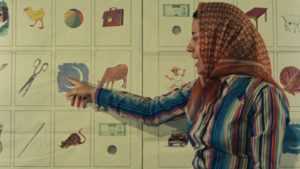 “An assignment from the Ministry of Education, this documentary from the last years of the Pahlavi dynasty includes interviews with officials who predictably praise teaching as a sacred, noble, and honorable profession. The teachers who are also interviewed are less starry-eyed; one speaks of ungrateful students and the job’s poor pay. The contrasting views express Kiarostami’s interest in education while registering some of his reservations about how it is practiced.” – Janus Films
“An assignment from the Ministry of Education, this documentary from the last years of the Pahlavi dynasty includes interviews with officials who predictably praise teaching as a sacred, noble, and honorable profession. The teachers who are also interviewed are less starry-eyed; one speaks of ungrateful students and the job’s poor pay. The contrasting views express Kiarostami’s interest in education while registering some of his reservations about how it is practiced.” – Janus Films
This series is presented as part of Kiarostami: Beyond the Frame, in memory of Jeanne Hoffman Smith and in partnership with Janus Films.
